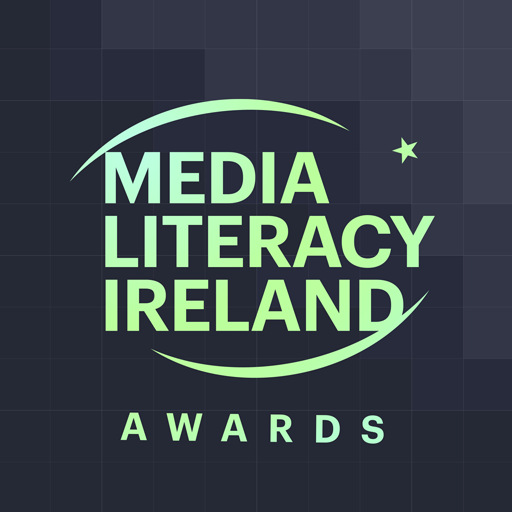Media Literacy Ireland (MLI) is pleased to announce the launch of the first ever dedicated awards programme to recognise and celebrate media literacy in Ireland. The Awards launch takes place on 15th December, at MLI’s annual conference, hosted this year by member Trend Micro.
Supported by the Broadcasting Authority of Ireland, the awards aim to raise awareness of the importance of media literacy, recognise the existing media literacy work being undertaken in Ireland and to inspire the development of new media literacy initiatives across the country.
There are four award categories:
- Best Youth-led Media Literacy Intervention
- Best Media Literacy Intervention
- Media Literacy Media Champion
- MLI Member Special Contribution.
Commenting on the Awards, Co-chair of MLI Brian O’Neill said “Never before has digital and communications technology offered us so much opportunity to participate and engage with media, in all its forms, such as civic, cultural, economic and democratic participation. Yet the growing global information crisis shows us that these opportunities also come with risks. For example, this year’s Reuters Digital News Report for Ireland, notes Irish people continue to be concerned about fake news or misinformation.”
Media Literacy, as reflected in the BAI’s Media Literacy Policy, is the key to empowering people with the skills and knowledge to understand how media works in the changing environment. Ireland is recognised as a country undertaking significant work in this area, with the 2022 Media Literacy Index1 showing that Ireland ranks 5th out of the 41 European countries included”.
Professor O’Neill also said “With the MLI Awards we want to celebrate what we have already achieved in Ireland, shine a light on best practice, and encourage even more collaboration across the country and among the wider MLI network.”
Details on the Awards process and how to enter can be found online at medialiteracyireland.ie/awards. The closing date for entries is 10th February 2023 with winners expected to be announced in late March 2023.
A Comms toolkit is also available on MLI’s website, to help various communities and networks, including organisations, schools, libraries, and colleges, learn more, spread the message, and show how they are promoting media literacy.
#MLIAwards2023
For further information and queries, please contact
info@medialiteracyireland.ie
1 How It Started, How It is Going: Media Literacy Index 2022 | OSIS.BG
Notes to Editors
What is MLI?
Media Literacy Ireland (MLI) is an informal alliance of individuals and organisations who work together on a mainly voluntary basis to promote media literacy in Ireland. Facilitated by the BAI, MLI has over 250 members drawn from a broad range of sectors.
Our vision is for all Irish people to be empowered with the skills and confidence to be able to access and critically evaluate content and services across all platforms, understand and question how media and digital technology operate, identify and manage risks, and participate in the public sphere in a responsible, ethical and effective manner.
What is media literacy?
MLI does not narrowly define media literacy. Instead, we look to the BAI Media Literacy Policy to illustrate what media literacy looks like in real terms for both individuals and for society. It outlines the following three core competencies and associated media literacy skills.
- Understand and critically evaluate broadcast, digital and other media content and services, in order to make informed choices and best manage media use.
- Access and use broadcast and digital media content and services in a safe and secure manner, to maximise opportunities and minimise risks.
- Create and participate via media, in a responsible, ethical and effective manner, in the creative, cultural and democratic aspects of society.
Professor Brian O’Neill is Professor Emeritus of Media and Communications and Director of Research at Technological University Dublin. His primary research areas are in young people’s use of digital technologies, online safety and policy for the digital environment.
He has undertaken research for the European Commission, UNICEF, the Council of Europe, the Ombudsman for Children’s Office and the Broadcasting Authority of Ireland on various topics associated with media literacy, child rights and information society technologies.
He is a member of the EU Kids Online research network and leads its work on policy. He is also a member of Ireland’s National Advisory Council for Online Safety and chaired the Irish government’s task force on Internet Content Governance.
